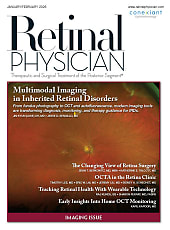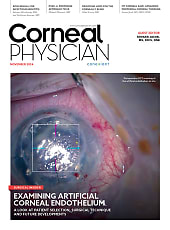I teach residents and fellows and I spend a lot of time with them. I find this experience very valuable because they are so excited to see new things and it gives me energy. The “new” things that trainees are constantly learning are often things that we as practicing retina specialists take for granted. Practices as common as the aseptic technique for scrubbing in for surgery and not dropping their hands below their waist are things that, as an attending, I have to make sure my trainees do correctly. Or even draping the eye, which everyone does a little differently. I get persnickety when my trainee doesn’t know my technique. “Back in my day,” I might say, “we wouldn’t dare come to the OR without preparing and knowing every step of the surgery, and that includes draping the patient!”
Another common complaint I hear from my colleagues is that the younger generation does not want to work and they are lazy. People often bring up how bad they had it when they were in school or training, compared to today. When I want to join in on these complaints, I remind myself that this is not a new discussion—I’m just getting old. My attendings used to complain about my classmates and me in the same way.
This is not to say there aren’t valid arguments on both sides. Physician burnout is a real problem and the Great Resignation has hit medicine as hard as any industry. It is the rare physician I talk to these days who does not want (or have) a “side gig,” along with a dream of not practicing medicine as much or possibly even at all. But training is supposed to be hard. The way we prepare the next generation of doctors, enabling them to care for people with skill and knowledge, cannot be done in an easy manner. The only way to the Promised Land is through the trials and tribulations of effective training. The consequences of not having properly trained physicians are severe, and we do not want to go down that path.
When young people are told that they are lazy and do not want to work, this “slacker generation” counters that the Promised Land doesn’t sound like it is worth giving up their youth. They have to hear their attendings complain constantly about paperwork, prior authorizations, patient reviews, and decreasing reimbursements. All of my colleagues need to think about that.
As I have written before, ophthalmology—and specifically, retina—is objectively the best field of medicine, as well as the best career that I can imagine. Maybe we should complain less to our trainees and younger colleagues about these issues and instead work to fix the negatives that are system-specific. We should focus on the positive and remind them that we are privileged to be part of an amazing field. But to properly appreciate the wonder that is the practice of retina and literal curing of blindness, they’ll have to put in the work. Encouragement is more likely to get the result we want than just yelling at them to “get off our lawns.” NRP
— Mitul Mehta, MD, MS
Vice President, American Retina Forum
Co-Chief Medical Editor, New Retinal Physician









